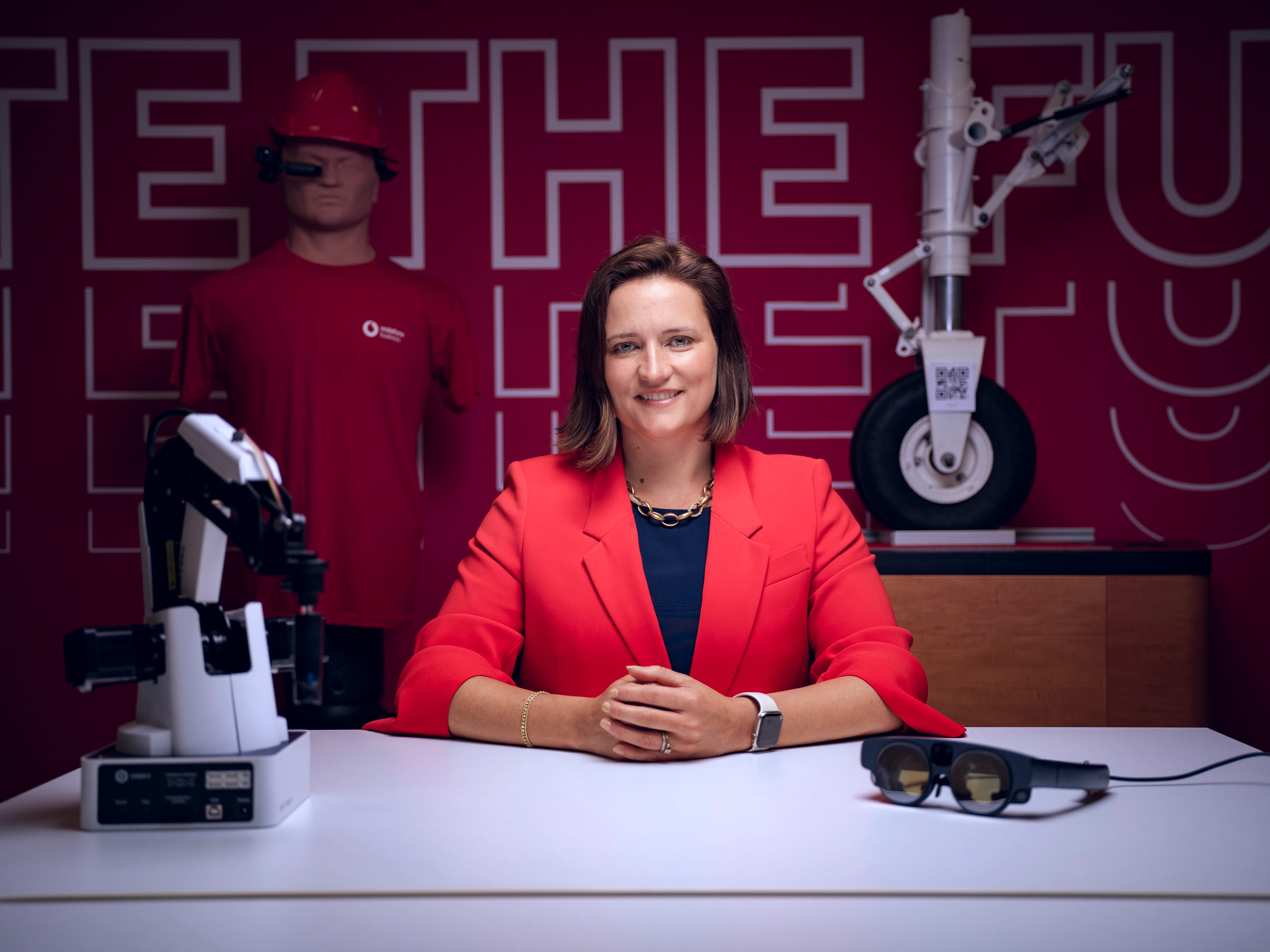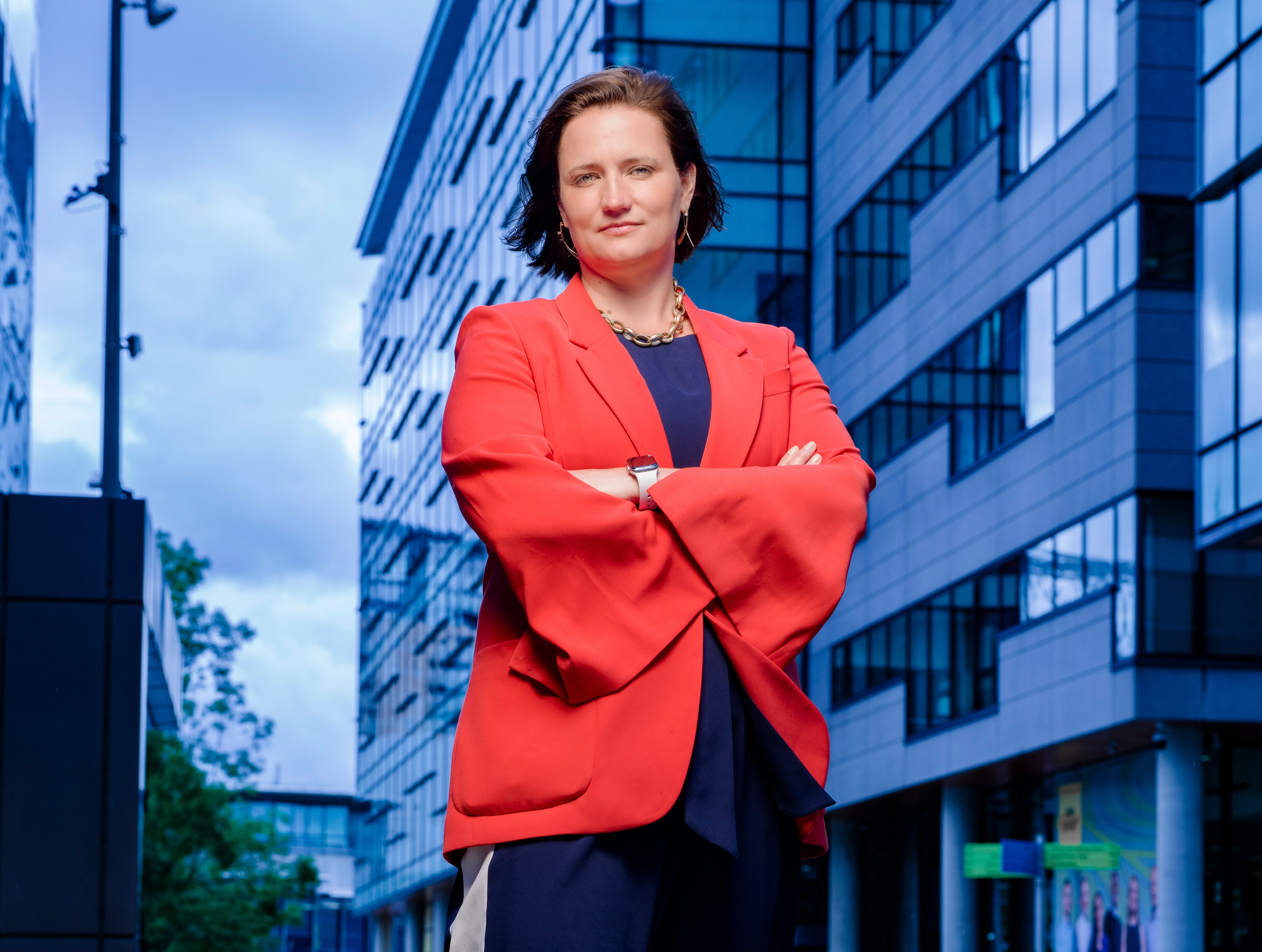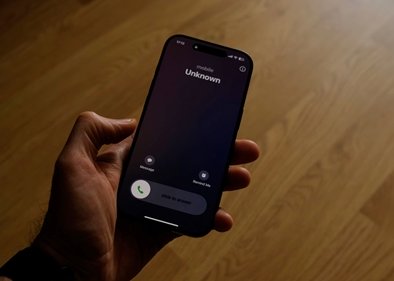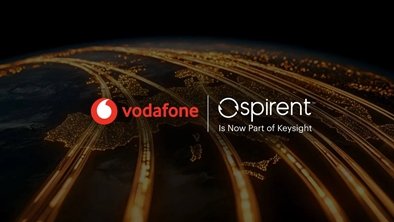Jennifer ‘Jenn’ Didoni likes to live life on the edge. When she’s not skiing black runs, she is advising Vodafone’s business and public sector customers on the best cloud, networking, and edge computing solutions to unlock their critical IT and application workloads.
These days, harnessing data to make informed decisions is a business necessity. As the volume of data and processing increases, its far more efficient to process it closer to the user rather than in large data centres that could be hundreds of kilometres away.
The EU is looking to increase enterprises’ use of cloud-edge computing from nearly 50% in 2021 to 75% by 2030. The sort of processing that can be done near the user includes data collected directly from trains to detect faults on the line, increasing the response times of biometric authentication payments at point of sale, or live streaming video from cameras worn by frontline emergency service personnel.
Zombie Data
As Head of Cloud, Edge, and Mobile Private Networks (MPNs) for Vodafone Business, Jenn’s toolbox includes a product and service portfolio of distributed computing technologies that can drive the digital transformations of more than 10 million organisations.
As Jenn points out, Vodafone took a bet a few years ago to position itself at the intersection between end users and largely U.S. based hyperscalers. The bet is paying off. By leveraging its geographical scale, Vodafone plugged its network into the cloud infrastructures of the main hyperscalers and is now the strategic partner of choice across Europe.
But like skiing, edge computing is not without its dangers, especially as companies move once centralised data ‘off-piste’. Securing an increasing number of network endpoints is just one hazard which can darken anyone’s cloud strategy. You also must manage multiple vendors, ensure proper governance and data sovereignty, and avoid swathes of ‘zombie data’ as a result of inefficient cloud usage.
“Our job is to make cloud and edge computing work for the customers, whatever their starting point and challenges,” Jenn explains. “It’s about removing the complexity and barriers so that our customers can de-risk their approach and maximise benefits.” Jenn is well qualified to weigh up the risks and ensure data is delivered securely across an organisation: Her first job was delivering pay cheques, on skis, to more than 500 workers at six restaurants across the Vail Ski Resort in Colorado.
Managing Multiple Clouds
Jenn has done her fair share of extreme travelling, from traipsing through an average snowfall of 350 inches in Vali, to walking 860 kilometres of the Pacific Crest Trail and working her way up through the ranks at IBM. She is now fully immersed in the cloud at Vodafone including both Vodafone-operated private cloud services, as well as public cloud offerings from the hyperscalers, including Microsoft Azure, Google Cloud Platform and Amazon Web Services (AWS). Vodafone Business allows companies to manage multiple clouds on one platform with a consistent managed service.
Complementing these cloud services are Vodafone’s Mobile Private Network (MPN) services designed for the security conscious business that wants to ring fence its data and more easily control autonomous guided robots and vehicles.
Recently, Jenn spearheaded Vodafone’s expedition into multi-access edge computing (MEC), which allows customers to access critical apps unhindered by faraway servers. MEC moves cloud-based IT services to the edge of Vodafone’s extensive network. This technology reduces latency by decreasing the number of digital hops between an end user's application and the cloud. It comes in two flavours – distributed MEC to serve multiple locations and applications, and a dedicated version for a specific task such as inspecting manufacturing assembly lines aided by artificial intelligence (AI).
Collectively, cloud, edge and MPNs are driving innovation, creating new eco-systems with Independent Software Vendors (ISVs), and quenching customers thirst for fast and secure connectivity. By stitching together these services via the Vodafone Business Multi-Cloud Platform and leveraging its pan-European 5G network, Vodafone Business can help customers hit the sweet spot with their digital transformation by facilitating a smooth migration to the cloud and the edge. This applies equally to an organisation with a single site or many locations across multiple countries.
40% Waste Reduction
There are very real benefits to cloud-edge solutions. For example, research shows that farmers with access to cloud-based data analytics and IoT connectivity can integrate data from drones, sensors, and weather reports to improve crop yields by 30% and reduce waste by 40%. Field engineers can improve productivity ten-fold by harnessing data held in the cloud, enabling faster fault-detection and more efficient repairs. However, these benefits can quickly evaporate if the price of the cloud outweighs the efficiency benefits.
Figuring out fees charged by cloud providers for data ingress (internal traffic) and egress (outbound traffic) is complicated. It usually requires a degree in cloud economics, not to mention the recruitment and retention of in-house cloud specialists. “It can be difficult to understand and manage costs,” Jenn explains. “Also, depending on the location, companies need to ensure that the data they store and move around complies with the relevant laws, all while bringing computing power and applications closer to the user. It’s like walking a tightrope.”
Vodafone Business does the balancing act for companies, negotiating and managing multiple clouds so they can focus on their business needs. It can also act as a security hub.
Global Cyberattacks
As global cyberattacks increase (cyberattacks rose by 38% in 2022), its crucial for organisations to become resilient if they are to earn and retain customer trust. Gartner estimates that 40% of all enterprise workloads will be deployed through cloud infrastructure and platform services (CIPS) this year, while most employees will still be working in a hybrid environment. These trends bring evolving cyber security risks, so delivering borderless security is more important than ever.
“If you’re running different workloads of the same application on multiple clouds then they need to be well connected. The entire architecture needs to be well thought through. On top of that, if you have remote workers, who are accessing those applications, security needs to be tight,” advised Jenn.
To counteract these cyber threats, Vodafone developed Secure Connected Enterprise (SCE), offering layers of security between users and systems across wide-area networks. SCE protects data wherever it is (which is often beyond company data centres). Alongside Vodafone’s managed cloud services, these business solutions are proving popular with customers across its European footprint. They form part of an expanding range of digital services which are growing nearly 15% year-on-year by revenue and are a major pillar in Vodafone Business’s ambition to become Europe’s leading business-to-business platform.
With a presence in 11 European countries and partnerships in many more, Vodafone is uniquely positioned to help customers manage multi-cloud set-ups, including across Amazon Web Services (AWS) and Microsoft Azure Public Cloud, and Vodafone Private Cloud, while meeting data sovereignty requirements.
Vodafone recently became the only European operator to offer customers across multiple European countries the dual benefits of high bandwidth with the ultra-low latency of distributed MEC powered by AWS Wavelength.
Faster Than the Human Eye

“When combined with fast 5G networks, Multi-Access Edge Computing can deliver apps and data stored in the cloud to customers faster than the human eye or ear can perceive an image or a sound, sometimes in under ten milliseconds,” explained Jenn. “This is crucial where split second decisions are needed, like controlling autonomous vehicles.”
It's also proving a boon for gamers and musicians because it can reduce a common VR headset wearers curse – nausea. Video game-induced nausea isn’t new. “As a kid, I would turn green after playing Duck Hunt [a 1984 game played on the Nintendo home games console] and be the first child pleading to pull over the car on long journeys. We designed our MEC service to go from the mobile base station to the edge within 10 milliseconds. Any latency below the 35-millisecond generally stops you feeling sick.”
Remote Controlled Networks
Vodafone embarked on a network modernisation and automation journey many years ago, and the fruits of these investments are helping to drive the growth and efficiency of its cloud and edge services. “Our networks are now remotely programmable in the same way that cloud revolutionised the hosting industry,” Jenn stated. “This is opening new growth areas for us, and through our scaled platforms, we are creating new revenue streams for our customers and partners. Vehicle to everything, or V2X, is one such example. My car can now send messages to infrastructure or other cars.”
Jenn says Vodafone is working with technology start-up Imperium Drive, which is introducing a new approach to car rental services with its mobility service, Fetch (fetchcar.io). Using Vodafone 5G and MEC, Imperium Drive is testing the delivery of a vehicle remotely driven direct to the customer’s door. Once the customer has finished their journey and parked safely, the operator then remotely drives it to the next customer or to the nearest parking base.
Difficult to Self-Build
Jenn points out that applications like these demonstrate the momentum for innovation within telecommunications companies. “The way that the network is evolving means that in the future, a customer can reserve network capacity with a guaranteed level of latency. Our network will be programmable on demand, it is not 100% ready yet, but we’re building towards it.”
The move to greater automation also puts Vodafone in a strong position in the MPN space. Private 5G networks are complex to build and install and require careful radio planning to ensure that the coverage is optimised. Then a customer needs to ensure that it is secure, with no rogue devices attached, especially if connecting with the outer public network and off-site end users.
“Vodafone has a 35-year pedigree as a technology communications leader. Building, operating, and fixing networks is in our blood. Recently, in a mock crisis we were able to demonstrate our global monitoring power across multiple regions.”
Working with teams across different languages comes naturally to Jenn since she is fluent in Spanish and Italian and is competent in French having studied at the renowned INSEAD business school in Fontainebleau. Born in Seoul, Korea, Jenn moved to Thailand at aged five, and later settled in Europe via Florida, New Jersey, New Hampshire and Colorado.
Despite working in a growth area interspersed with international travel (both via holographic conferencing using MEC and conventional means), she is not pushing her two young daughters along a similar path, partly due to their young age but also the due to the uncertainly surrounding the direction AI and other disruptive technologies might take.
AI Moral Dilemmas

“Typically, one would expect many parents to push their kids into computer science, engineering, or technology,” she said. “But will a computer science degree be as valuable in ten years from now? For example, AI is already presenting many moral dilemmas. Should I instead encourage my kids to take up philosophy and will this position them as being tomorrow’s most trusted coders? The future could be all about how one ethically trains a machine.”
Faced with today’s challenges Jenn demonstrates a keen ability to turn on a sixpence – a lesson learnt back in 2008 when the financial crisis saw her swerve finance in favour of technology. She now finds herself at the junction where the telco and tech worlds collide. But having conquered the most arduous parts of the Pacific Crest Trail, skied the treacherous slopes of Colorado, and expertly climbed the ranks of the tech ladder, helping customers commute to the edge probably seems like an easy green run to Jenn.

























